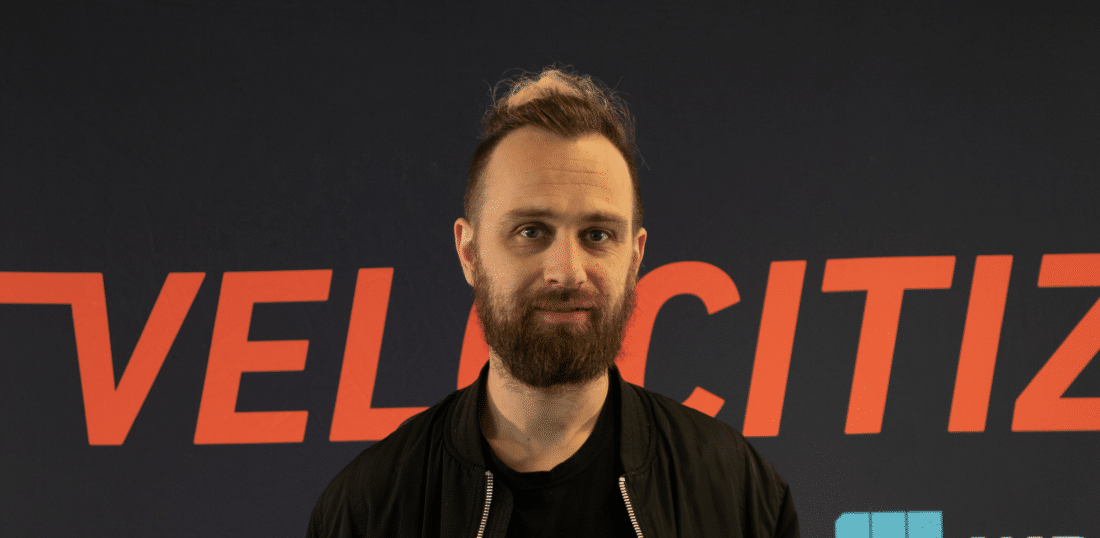Many companies have different channels that they are really good at. Over time they add more and more and more, but at the beginning you need to find the one that you’re good at.
This article was updated in February 2022.
Fred Schebesta is the Co-Founder and CEO of Finder. Finder is an online financial platform and Fintech company helping people navigate complex decisions. Schebesta started Finder because he believed in helping people find better deals, bringing transparency to markets, and sharing money-saving hacks. He was awarded Ernst & Young’s 2017 Entrepreneur of the Year.
In this episode of Velocitize Talks, Schebesta discusses his experience running a startup, neobanking and the future of online payment.
Neobanking on it (1:59)
I think some emerging categories are digital banks like these new neobanks. You’re seeing them in the UK, seeing them here in Australia, and not as much in the U.S., but I think they will come.
A neobank is a type of direct bank that operates exclusively online without traditional physical branch networks. Payments are changing. In the past, people used credit cards but now more people are using apps, online services, and debit cards.
Just last year, digital and mobile wallet payments accounted for 41.8% of online transactions worldwide. Credit cards were the second most used type of payment online. And they were the most used payment method in the U.S. in 2019, making up 40% of point of sale payments.
Entrepreneur Therapy 101 (3:12)
I put myself on purpose into a constant state of uncomfortableness to grow as an individual to ensure that basically I’m not the limiting factor of the company then get out of the way.
There are 582 million entrepreneurs in the world. The energy and passion it takes to build and run a company is undeniable. That’s why it is important for entrepreneurs to get the advice and resources they need to take care of themselves.
“As an individual you have to continuously fire yourself, rehire yourself in a different role, and relearn your entire skill set,” Schebesta says. “If you don’t then I don’t think you perform as well as a company. I don’t think you perform as well as an individual.”
This mindset has tremendous effects on the rest of the company, as they set the expectations and standards for their employees.
Start it up (5:35)
At the beginning you need to find your one thing that you’re good at and forget about the rest because when you’re beginning you just need a constant source of customers coming in.
One-third of startups fail within two years and about half within five. This stat points to the importance of lasering into the one thing that the business excels at from the onset. To push through that initial volatile period, couple it with good business strategies and quality management.
Schebesta’s advice is to “find a channel that you master, that you are going to dedicate an extreme amount of resource and energy to bake into the company.” At the beginning companies need to concentrate on their social strategy overall and the channels they’re already familiar with. Then they can start exploring other channels for their messaging.
It is also important to not get distracted by all of the other ideas and shiny objects that come your way in this initial startup phase. Schebesta warns against focusing too quickly on future products or services. Instead he recommends focusing on what your customers are going to experience and what you’re going to do now. It may be difficult to do but it will be worthwhile in the end.
Virtual currency (9:43)
VR will be one of the instigators to bring virtual currencies to the norm.
With many of the major tech companies, like Facebook, Sony, and Google investing in VR (Virtual Reality), it’s no surprise that the money is following. Virtual currencies exist within virtual worlds. They’re an unregulated form of payment controlled by its developers.
By 2021, spending on goods and services in VR and AR (Augmented Reality) worlds will reach $100 to $200 billion.
What I’m reading (10:16)
I regularly read The Seven Habits of Highly Effective People by Stephen Covey. I go back to that book all the time: ‘Begin with the end in mind.’ It’s really a refresher of, I could do better, and here are some places I could improve.
Named the #1 most influential business book of the 20th century, The Seven Habits of Highly Effective People has sold over one million copies. It has influenced a generation of leaders who have taken its timeless tips to heart.
The praises and accolades are many and the author has built an online community with resources, events, trainings, and a community to provide powerful lessons for personal change.
For more information on Finder, check out their website, and follow them on Facebook, Instagram, YouTube and Twitter at @finder. To stay up to date with Schebesta, follow him on LinkedIn and Twitter at @Schebesta .
This interview was originally recorded in 2019 in Sydney, Australia.
